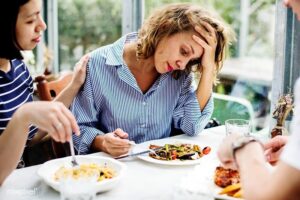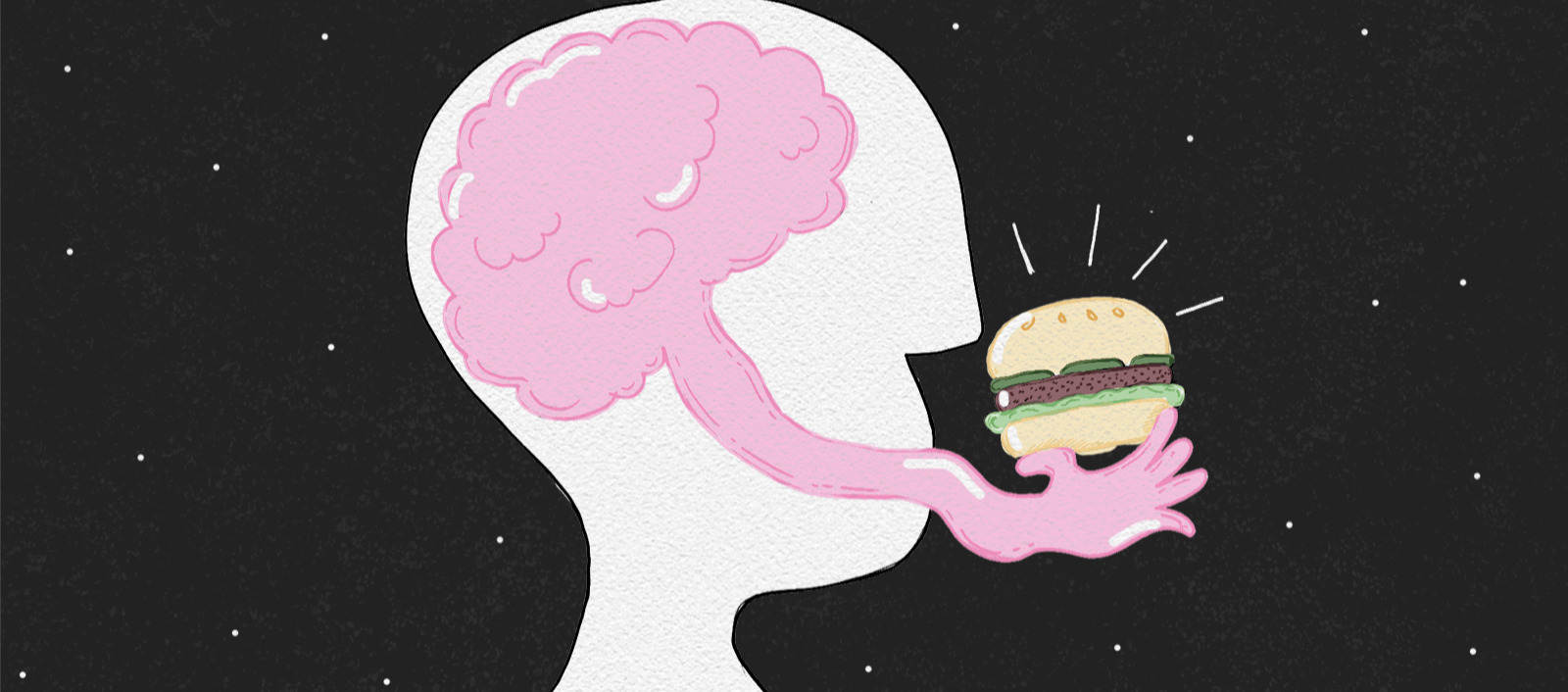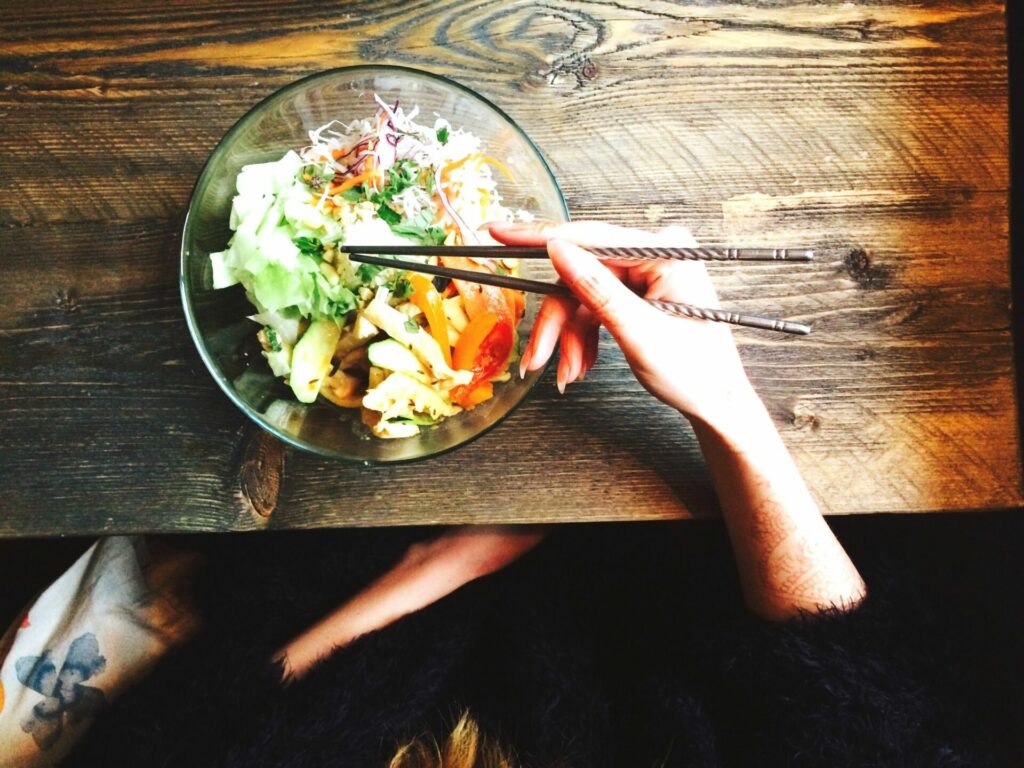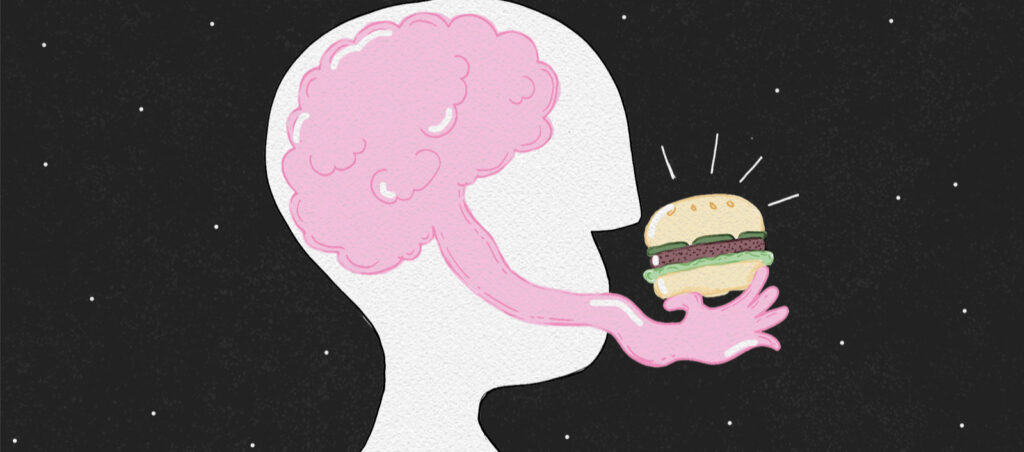Eating can be one of the most enjoyable activities in life, and yet for some people, it can also trigger anxiety. In this article, we’ll explore what causes anxiety after eating and offer tips on how to deal with it. We’ll also provide a list of resources related to anxiety after eating so that you can find the help that you need.
Contents
What is Anxiety After Eating?

Many different types of anxiety can occur after eating, including but not limited to pre-meal anxiety, post-meal anxiety, anterograde anxiety, and retrograde anxiety. Each type has its own set of symptoms and causes, so it’s important to know what to look for and how to treat it.
Pre-meal anxiety is the most common type of anxiety after eating, and it typically occurs before meals. This type of anxiety is often caused by a fear of food or fear of eating. People with pre-meal anxiety tend to have a hard time concentrating on anything else while they’re eating, and they often feel nervous and embarrassed.
Post-meal anxiety is the next most common type of anxiety after eating, and it typically occurs after meals. People with post-meal anxiety often feel anxious and tense immediately after they finish eating. They may also feel like they can’t stop thinking about their meal or they may feel sick afterward.
Anterograde anxiety is the type of anxiety that occurs before something bad happens (like a test) and retrograde anxiety is the type of anxiety that occurs after something bad happens (like a test). Both types of anxiety can be frustrating because they make it hard to focus and concentrate.
Treating anxiety after eating typically involves treating the cause of the anxiety. For example, if pre-meal anxiety is caused by a fear of food, then therapy or medication may help relieve that fear. If post-meal anxiety is caused by a fear of eating, then education about eating habits and techniques for dealing with anxiety before and after meals may be helpful.
Causes of Anxiety After Eating

Anxiety after eating is a common problem, and there are many possible causes. Here are some of the most common:
Anxiety can cause you to eat more than you normally would.
One of the most common reasons people develop anxiety after eating is because they feel like they have to eat something or they’ll feel bad. This can trigger a cycle of overeating that can lead to weight gain and other health problems.
Anxiety can also cause you to avoid food because you associate it with your anxiety symptoms.
If you’re anxious about what you’re eating or how it will make you feel, it can be difficult to stick to a healthy diet. Eating foods that make you feel good physically and emotionally can help relieve anxiety and promote weight loss.
Anxiety can also cause you to overindulge in unhealthy foods.
If you’re anxious about food, it’s easy to turn to unhealthy snacks or junk food to ease your feelings. This can lead to weight gain, health problems, and a feeling of being out of control.
Anxiety can make you feel like you need to eat right away, even if you don’t have an appetite
Feeling of being constantly hungry can contribute to anxiety and make it difficult to stick to a healthy diet. If you’re always starving yourself or feeling like you have to eat right away, this can be another obstacle to weight loss and a healthy lifestyle.
Does Anxiety After Eating Impact Someone?

The impacts of anxiety can vary from person to person. Anxiety can range from mild to severe and can have a significant impact on someone’s day-to-day life. Some common symptoms of anxiety include feeling tense, anxious, or worried; having trouble concentrating; feeling like you are going to vomit, and having a racing heart or feeling like you are about to faint. If you are experiencing any of these symptoms after eating, it is important to speak with your doctor or therapist about how they may be impacting your overall well-being.
These impacts also tend to vary depending on the person’s diet and how their anxiety is triggered. For some people, anxiety can be triggered by specific foods or food groups. Other people may experience more general anxiety symptoms regardless of the foods they are eating. It is important to talk with your doctor or therapist about how their diet and anxiety might be impacting your health and well-being.
It is maybe helpful to try a food diary to track what foods are triggering your anxiety and how you are feeling after eating them. This will help you to understand your body’s response to different foods and may help you to develop better coping mechanisms for when anxiety arises after eating.
What To Do To Relieve Anxiety After Eating?

There’s no one-size-fits-all answer to relieving anxiety, as the best approach will vary depending on the individual’s circumstances. However, some general tips that may help include:
Try to relax: Anxiety is often caused by stress, and reducing or eliminating the source of that stress can often help alleviate anxiety symptoms. One way to do this is to relax before, during, and after meals. This can be done by focusing on your breathing, mindfulness techniques, or calming images.
Practice moderation: Eating too much or too little can lead to anxiety. It’s important to find a healthy balance between what you eat and how much you eat. If you’re struggling with overeating or undereating, talk to your doctor or therapist about how they can help support your healthy eating habits.
Get plenty of exercises: Exercise has been shown to help reduce anxiety in many people. In addition, it can also improve mood and concentration. exercise can be done in a variety of ways – including walking, swimming, biking, and lifting weights – so there is something for everyone to enjoy.
Get enough sleep: Most people need at least 7 to 8 hours of sleep per night to feel their best. If you’re struggling to get enough sleep, there are a few things you can do to help. One option is to try working out in the early morning so that you have more time to sleep in later in the day.
Talk about your anxiety: It’s important to talk about any concerns or worries that you have with others. This can be done in a variety of ways, including talking with your doctor, therapist, friends, or family. Talking about your anxiety can often help reduce its intensity and impact on your life.
Conclusion
Anxiety after eating is a common problem that can have a significant impact on someone’s day-to-day life. In this article, we’ve outlined the different types of anxiety after eating, outlined the causes of anxiety after eating, and provided tips on how to relieve anxiety after eating. If you are experiencing any of the symptoms listed above, it is important to speak with your doctor or therapist about how they may be impacting your overall well-being.
Please note that this article is for general informational purposes only and is not a substitute for professional medical advice. If you need professional assistance, please seek the help of a psychiatrist, psychologist, or other mental health professional.
Hope this article was of help to you! If you are suffering from mental health disorders, you may seek help from Therapy Mantra. We have a team of highly trained and experienced therapists who can provide you with the tools and skills necessary for overcoming mental health disorders. Contact us today to schedule an online therapy or download our free Android or iOS app for more information.


